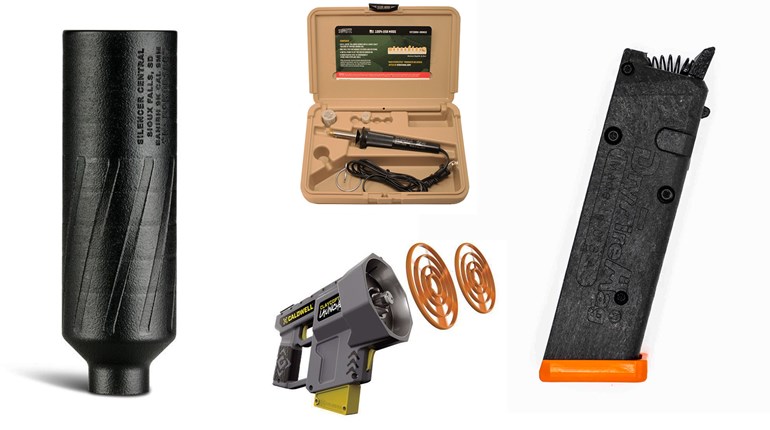
One of the biggest mistakes the armed citizen can make is allowing a criminal attacker to get too close before attempting to take defensive action. Once the bad guy gets in close—say, handshaking distance—a lot of bad things can happen. If the situation escalates to shooting, your advantage of having done a lot of practice is just about canceled. At close range, everyone is a good shot.
We train ourselves to be constantly alert to our surroundings (Condition Yellow) in order to spot suspicious people while there is still time to exercise defensive options. And when we see a suspicious person zeroed in on us and headed our way, he needs to be stopped. We shouldn't be afraid to speak up, in a commanding voice, and say, "Stop right there. What do you want?" If you have a partner with you, he or she should immediately start a flanking move.
Should the suspicious person not have any criminal intent, you have not violated any law by speaking up and telling him to stop in his tracks. On the other hand, if he ignores your command, you now begin to establish reason to believe he is up to no good. This is not the time to start shooting, but you must now consider you are very possibly the focus of a criminal act, and you should be prepared to act accordingly.
When the suspect won't stop, you may also create distance on your own. Moving to one side or another, moving laterally or backing up all create distance while you try to figure out what is going on. Avoid creating distance by turning your back on the threat, and minimize the amount of backing up that is done—one rarely backs up very far without tripping over something and ending up on the ground. Flat on your back on the ground is not a good place to be during a criminal attack.
Finally, don't be afraid to get something between you and the suspect. In a parking lot, step around a car so it serves as a barrier. Indoors, consider doing the same with tables and desks. Create distance and create barriers.
Should the suspect turn out to be a criminal armed with a firearm, engaging the threat from the distance you created should work to your advantage. That, of course, is because you have been practicing. (You have been practicing, haven't you?) Depending on the situation, distance may also allow you to exercise other alternatives short of shooting.
Make distance work for you, because distance is your friend.





































